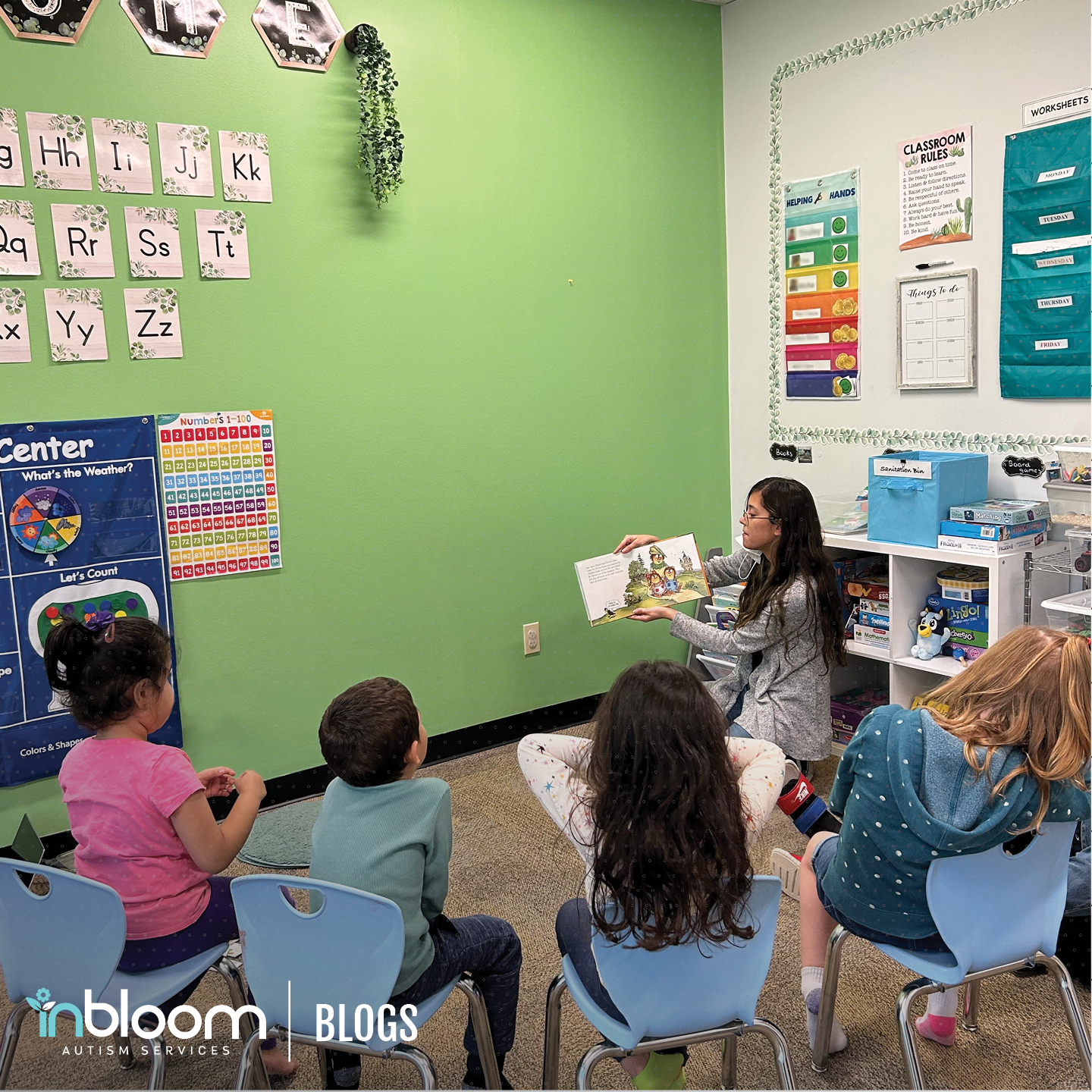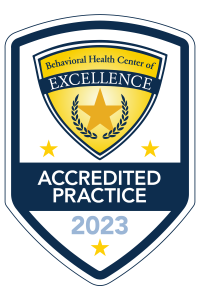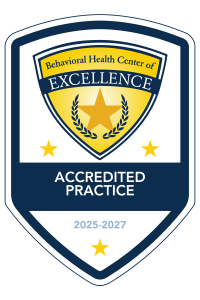School-Based Programs vs. Center-Based ABA Therapy

And just like that, your baby has become a toddler, and preschool and kindergarten are on the horizon! Choosing the right type of classroom should depend on your child’s unique needs. If you’ve noticed that your child is not meeting certain developmental milestones, it may be time to consider an evaluation. Early detection of developmental delays can start at 18 months. This can make a life-changing difference by providing you and your child with the tools and support to thrive!
If you notice developmental delays such as limited eye contact, struggles with communication, and/ or avoidance of social interactions, consider asking your pediatrician about screening to see if autism spectrum disorder (ASD) could be a factor to consider. As InBloom Autism Services’ Licensed Psychologist, Dr. Jaqui Otto, explains: “Being properly assessed by a psychologist as soon as autism is suspected is important because it is critical that children with autism receive early intervention. And licensed psychologists are particularly well-trained and well-versed to help make those diagnoses to help parents understand if what they are seeing in their child is consistent with ASD.”
Choosing the Best Path for Your Child
When considering how to best support your child in those crucial early years, deciding between public school programs, private school programs, or Applied Behavior Analysis (ABA) programs can be overwhelming. Each has unique benefits, and the right choice depends on your child’s specific needs, learning style, and your family’s goals. To help you choose the right path for your child, here’s a breakdown of the main benefits of school-based programs versus individualized ABA therapy, offered here at InBloom Autism Services.
Public & Private School Programs:
Many families explore school options for their children. School programs typically offer a classroom-based experience and allow children to engage with their peers in a structured, academic environment, helping to build familiarity with a school routine. School programs can offer valuable benefits, including:
- Small Group Ratios: Public and private school programs typically provide a 1:3 student-to-staff ratio, so each child has support within a small group setting. *Please note ratios may vary depending on the school and staffing, please ask the school directly.
- IEP-Based Support: For children with an Individualized Education Program (IEP), additional support from paraprofessionals, speech therapists, and occupational therapists may be available. Be sure to check with the school and school district.
- Peer Interaction: Children in these programs get the chance to interact with same-age peers on all developmental levels, supporting social development.
- Alternative Approaches: Some public and private schools may have unique curriculums and teaching approaches that differ from traditional public school curriculums. For example, Montessori schools emphasize whole-child development and are unstructured to foster creativity and independence.
Benefits of Center-Based ABA Therapy for Autism:
Here at InBloom Autism Services, our Applied Behavior Analysis (ABA) therapy program is designed to address the unique needs of each child through specialized, highly individualized support. ABA therapy is a research-backed approach for autism intervention with over 50 years of proven results. Some of the key benefits include:
- Therapeutic Learning Centers: Our learning centers have an array of different activities and toys to keep learning fun and to keep children engaged. Group activities with peers, such as circle time and planned “play dates” with peers create an abundance of opportunities to work on social skills.
- 1:1 Attention: Unlike most school settings, ABA therapy is one-on-one, ensuring that each child has focused support and attention tailored to their needs and goals.
- Learning Readiness Programs: Though therapy is mostly 1-on-1, your child will engage with peers in our Learning Readiness Program (LRP), which simulates a classroom setting This curriculum prepares children for school by building key skills like socializing, communication, following group directions, transitioning between activities, working independently, and more.
- Insurance Coverage: ABA therapy is covered by many insurance plans, including Medicaid, which can reduce financial barriers for families. Our Care Team will help you navigate coverage during the onboarding process.
- Comprehensive, Evidence-Based Approach: Our ABA therapists are highly trained and supported by Board Certified Behavior Analysts (BCBAs), adhering to the ethical standards set by the Behavior Analysis Certification Board (BACB). Our centers also foster ongoing coordination of care amongst clinicians and other therapies, providing the opportunity for comprehensive and individualized teaching approaches.
- Individualized Teaching Plans: Every child receives a customized program, targeting specific skills and needs. This includes a data-driven approach where your child’s progress is monitored in real-time, allowing us to adjust the plan as your child grows and develops.
- Caregiver Coaching: As your child learns new ways to interact with the world, you and your family will learn alongside them. Our coaching sessions allow your family to work closely with our team, refining your child’s therapy plan for a cohesive approach. Your child’s BCBA will meet with you regularly to review progress and provide strategies to support learning at home. Our BCBAs collaborate with you to develop meaningful caregiver goals and they can visit your home and community settings to work alongside you and your child.
- Skill-Building for Long-Term Success: ABA therapy places emphasis on building fundamental skills like social communication, language, play, daily living skills, and behavior management. These skills will help children bloom not just in school but throughout life, boosting their confidence and independence!
- Proven Outcomes: Decades of research support the effectiveness of using highly individualized ABA approaches to help children with autism thrive.
ABA therapy also offers support beyond just the classroom. Our team is there to help you with real-world situations, daily living activities, and more—whether it’s at home, in community settings, or even at the doctor’s office. Visit our website to learn more about InBloom’s ABA therapy program.
Making the Right Choice for Your Child
Choosing between public school, private school, or an individualized ABA program like InBloom’s depends on your family’s needs, goals, and values. If your goal is to provide your child with a structured, data-driven approach to support their unique developmental journey, our ABA program may be the right fit. It’s our mission at InBloom Autism Services to give children and families the tools they need to succeed, with compassionate and evidence-based support.
To learn more or schedule a consultation, contact InBloom Autism Services today—because every child deserves a team that will help them reach their full potential!
Call our team to get started: 888-754-0398
Tour an InBloom Learning Center near you!
Parent Resources:
The National Autism Center’s – A Parent’s Guide to Evidence-Based Practice and Autism: Providing Information and Resources for Families of Children with Autism Spectrum Disorders: https://nationalautismcenter.org/family-resources/parent-guidebook/
https://nationalautismcenter.org/family-resources/
InBloom Autism Services specializes in early intervention ABA Therapy. Our certified therapists undergo training to implement teaching programs specifically designed for children aged 5 and under with autism. Our Learning Centers also offer a safe and enjoyable environment for children to interact and practice social skills with their peers. Find a Learning Center near you!
Related Blogs:
What Does a Day of ABA Therapy Look Like?



